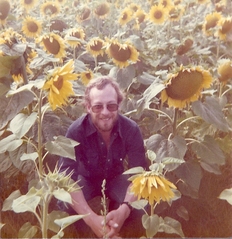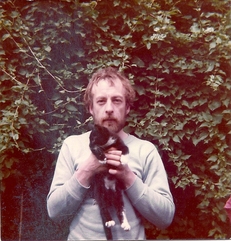My Sainsbury Centre students have reached the editing and revision stage. All have completed shorts stories linked to the current Realities exhibition. It has been fascinating to read the wide variety of fiction derived from this diverse exhibition.
A few have chosen the same painting and yet their stories are worlds apart, this link between writing and the visual – the sister arts – brings about an exciting exchange between narrative and image. This type of site–specific course is ideal for novice writers, it is helpful to choose an image or artefact as inspiration. Often in workshops, students are given a topic or a spark word, but I find that a painting, sculpture or artefact encourages exploration through research which leads to inventive and original ideas. There are stories buried in the research and they emerge into narratives that grip the reader.
This particular cohort hit the ground running, when asked to write a five hundred word opening, many returned with a full length story of almost three thousand words! Now these words need taming, reducing and moulding into a narrative that is lean, taught and gripping. Compelling writing isn’t flabby, repetitive or meandering. How to go about this task of training the group to edit? The maximum length of the stories was supposed to be 2,200 to 2,500 as a maximum, but rather like motorists the majority have been sticking closely to the upper speed limit. I use this length as it is close to the majority of short story competition word counts. It means that they will then have a tailor–made story to enter. As yet no one has embarked on a pithy bit of flash fiction.
Taming this surfeit of words proves difficult. I suggest parking sections at the back of the story for the time being and later in folder on their computers, which is what I do. Currently I have a number of pages tucked away at the back of my novel; whole scenes have been removed and parked in the unnecessary words parking–lot behind the end of the novel. Sometimes I resort to issuing an ultimatum, saying cut five hundred words, this can induce panic as to them the suggestion seems akin to slicing it up with a rapier. But I have found that simply removing five hundred words from my short stories improves them enormously. Editing has never damaged my work it has only ever improved it.
Editing is demanded by agents and then publishers, my current novel has been edited on several occasions and now requires re–drafting and I doubt this will be the last time. I was interested to see that Ian Nettleton, a runner up in the Bath novel prize has reworked his novel several times over a number of years. This is typical and needs to be understood that the process on the path to publication which is littered with parked words, scenes and sometimes characters. Students of writing need to appreciate that is there is a craft to writing, there is a whittling away at the words until one has fashioned a work of fiction that has a form and is fit for purpose. I am sure we have all read novels by luminary authors where the deft hand of an editor is no longer present, they have simply become too grand to be edited and this is not a good thing. The gimlet eye of an editor is to be valued. So find a parking–lot and excise the extraneous, over–written and the repetitive.
On a sadder note, I have only just heard that The Guardian journalist Peter Chippindale (Chip) died in August 2014. Peter and I lived together in the nineteen–seventies. After we parted romantically we remained good friends, but I lost touch with him when he moved to Cornwall where I tried to visit him but he had moved on with no forwarding address. I have many happy memories of our time together. Our first date being somewhat bizarre as after lunch we went on a tour of an estuary where body various parts had been discovered, at the time Chip was investigating the notorious Torso Murder Case; I met number of gangland villains thereafter. I was present at the Thorpe Committal Proceedings in Minehead where I met Norman Scott, whom I recall had a fine collection of art Deco pottery an interest that we shared. Peter was great fun, with a brilliant anarchic humour; he once ‘liberated’ an RSPCA box for me, it has three adorable kittens looking pleadingly at empty milk bottles, it is in my sitting room and continues to attract comment. I was with Chip in his journalistic heyday; sadly it seems he never bettered those times professionally.
The following link will take you to The Guardian obituary by his good friend, the journalist David Leigh.
http://www.theguardian.com/media/2014/aug/13/peter-chippindale
On holiday in France With our kitten Mars
4th July1945 – 10th August 2014
4th July1945 – 10th August 2014


 RSS Feed
RSS Feed